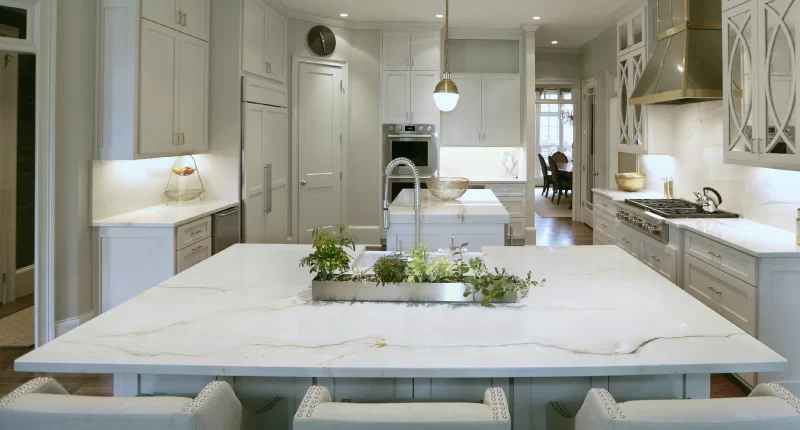- August 10, 2024
- 0
- Quartz
Quartz vs Granite: Choosing the Right Countertop Material

Apperance:
Granite: Distinguished by its distinct veining patterns and inherent beauty. Every slab is
distinct.
Quartz: Designed to have a more homogeneous appearance or to resemble real stone. It
can also mimic other materials, such as concrete or marble.
Durability:
Granite: Extremely strong, stain-, heat-, and scratch-resistant. It might, however, need to be
sealed because it can be permeable.
Quartz: Resistant to stains, scratches, and bacteria due to its extreme durability and non-
porous nature. It doesn’t need to be sealed.
Maintenance:
Granite: Requires regular sealing to keep it resistant to moisture and stains.
Quartz: Just routine washing with a little soap and water is enough to maintain
this material.
Cost:
Granite: Depending on the stone’s rarity, prices can differ significantly. It can
generally be more costly than quartz.
Quartz: Depending on the manufacturer and design, it can be less expensive
than expensive granite.
Variety and Availability:
Granite: Due to its natural limitations, some colors and patterns may not
always be available.
Quartz: Easily accessible and comes in a wide variety of hues and patterns. can
be altered to meet certain design requirements.
Environmental Considerations:
Granite: A naturally occurring stone that is recyclable but has implications for
mining and transportation.
Quartz: Made from natural quartz mixed with pigments and resins. Recycled
materials are used in several items.
Installation:
Since both materials are heavy and require exact cutting and fitting,
professional installation is required.
